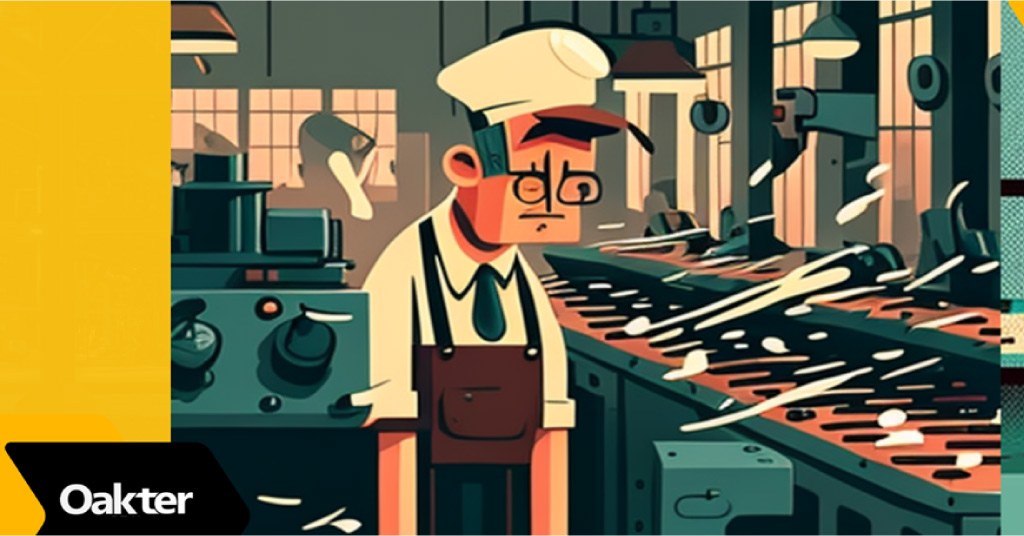
6 Challenges in Contract Manufacturing and How to Avoid Them?
You may have found the perfect contract manufacturing partner to bring your products to life, but this exciting journey could suddenly meet with a series of roadblocks. Consequently, it can feel like a never-ending uphill battle, from quality control issues to communication breakdowns.
But what if we told you that these challenges could be overcome with a bit of foresight and preparation?
Join us as we explore the six challenges in contract manufacturing and discover how to avoid them to ensure a seamless production process.
6 Common Contract Manufacturing Challenges and How to Avoid Them

Contract manufacturing has challenges that must be dealt with by adopting a multi-pronged approach. With this, companies can ensure the success of their contract manufacturing relationships and achieve their production goals.
Here are some common challenges in contract manufacturing and how they can be avoided:
1. Quality Control
Quality control is one of the biggest challenges in contract manufacturing. While partnering with a third-party manufacturer, it becomes difficult to ensure that the products meet the required quality standards. This challenge can stem from several factors, such as differences in quality control processes, lack of clear quality standards, and communication breakdowns between the company and the contract manufacturer.
How to Maintain Strict Quality Standards?
To avoid this challenge, companies must establish transparent quality control processes and protocols and communicate them to the contract manufacturer. They should also ensure that the contract manufacturer has strict quality control measures in place to meet the desired quality standards.
This will help minimise the risk of inconsistencies in product quality and ensure that the final product meets the company’s expectations.
2. Supply Chain Management
Supply chain management is another major challenge in contract manufacturing. It involves coordinating the flow of materials and components from suppliers to the contract manufacturer and, ultimately, the company. Supply chain disruptions can significantly impact production, leading to delays and increased costs.
Some of the common supply chain challenges in contract manufacturing include the following:
- Component availability
- Quality of components
- Transportation and logistics
- Inventory management
How to Avoid Inadequate Supply Chain Management?
Effective supply chain management requires collaboration with suppliers, implementation of real-time visibility tools, development of contingency plans, and regular risk assessments.
By working closely with suppliers and utilising advanced technology, companies can improve the efficiency and transparency of their supply chain, reduce costs, and mitigate risks.
Moreover, Regular risk assessments and contingency planning can help companies quickly identify and address potential problems, ensuring their supply chain remains on track.
3. Cost Control
Cost control can be a challenge in contract manufacturing because the contract manufacturer may have a different cost structure or pricing model compared to the company.
This can result in unexpected costs and can impact the company’s profitability.
How to Solve The Cost Control Issue?
To avoid this challenge, companies should clearly understand the contract manufacturer’s costs: including labour, materials, and overhead, and negotiate a mutually beneficial pricing structure.
Also, regular monitoring can keep the costs in check.
4. Lead Time
Lead time in contract manufacturing is often longer than the lead time for in-house production.
It can result in delays in getting the product to market and affect the company’s ability to meet customer demand.
Ways to Streamline Lead Time
Companies should work closely with the contract manufacturer to establish clear lead time expectations and contingency plans in case of unforeseen delays.
Regular communication and tracking of the production schedule can also ensure that lead time is kept within acceptable limits.
5. Communication
Effective communication is critical to the success of contract manufacturing, as it helps to ensure that the company and the contract manufacturer are on the same page and working towards the same goals. However, communication breakdowns are frequent due to differences in time zones, language barriers, or lack of regular communication.
How to Overcome The Communication Barrier?
To avoid this challenge, companies should establish clear communication channels with the contract manufacturer and have regular meetings or check-ins to review progress and address any issues that arise.
Ensuring a designated point of contact on both sides can also help streamline communication and minimise the risk of breakdowns.
6. Intellectual Property (IP) Protection
Protecting IP is a key challenge in contract manufacturing, as companies need to ensure that their proprietary information and technology are not shared with competitors or third parties.
This can be difficult when outsourcing production to a third-party manufacturer, as companies may not have full control over the security of their IP.
How to Ensure The Security of Your Intellectual Property?
Include robust IP protection clauses in your contracts with the manufacturing partner, and regularly monitor compliance with these clauses.
It can guarantee their IP protection and minimise the risk of unauthorised sharing or use.
Final Thoughts
From quality control issues to communication breakdowns, the above-mentioned challenges can put a damper on the production process and impact the success of the relationship.
But with a proper strategy, these challenges can be deftly avoided, and companies can forge productive, mutually beneficial partnerships with their contract manufacturers.
At Oakter, we understand the challenges faced by companies in the contract manufacturing industry. That’s why we offer a range of automation and manufacturing solutions that can help streamline the production process, reduce costs, and improve the overall quality of the products. We also have an experienced team shipping 500k+ products each month.
So if you’re looking for a contract manufacturing partner to help streamline your manufacturing process, look no further than Oakter!
Contact us today to learn more!

